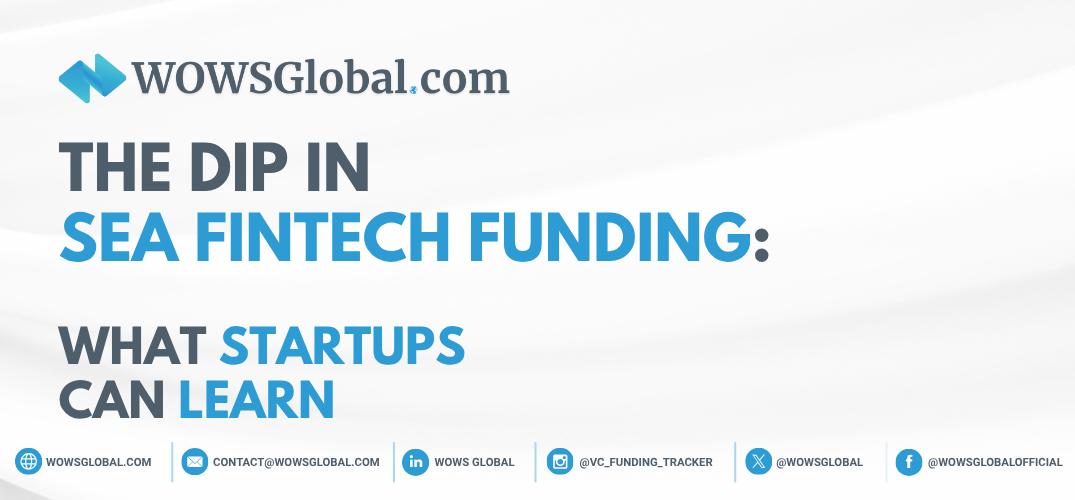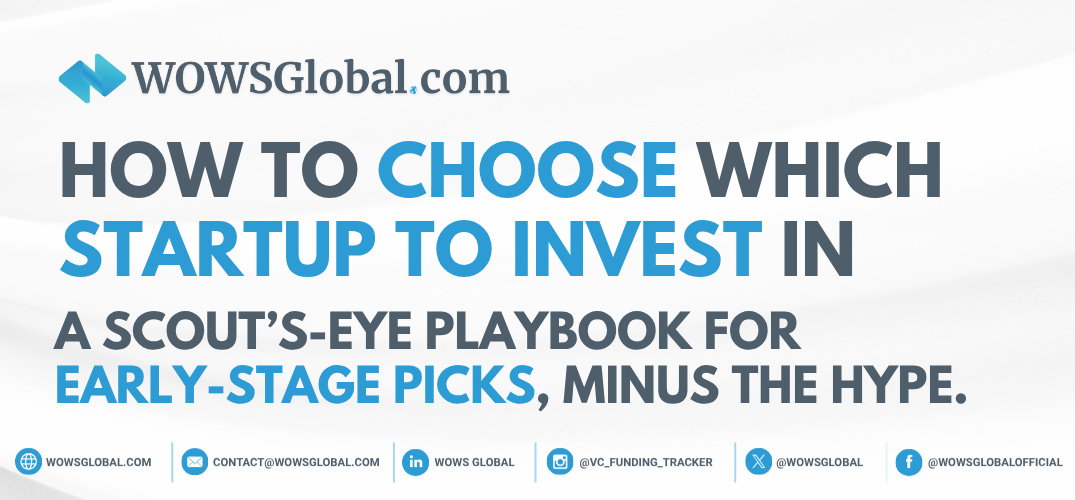6 Common Mistakes That Early Startups Make And How To Avoid Them
Early Startups Mistakes

Founding your new business is an exciting and energetic time but the energy put into building your new company needs direction and full focus.
Many new founders fall into the trap of not concentrating their efforts most effectively. That is understandable because there are so many things to deal with at the same time.
However, there are some common mistakes that many startup founders make that with thought, understanding, and preparation can be avoided.
With that in mind, here are 6 mistakes you can avoid:
Mistake #1 - Not Drawing up Contracts
When establishing a new venture many founders feel that verbal agreements are sufficient for co-founders and early-stage investors. Other founders have the intention of drafting, issuing, and agreeing on contracts at a later date. However, that never materializes because the task is put on the back burner due to more pressing matters.
Do not make that mistake. As your startup grows there is a possibility that some of these relationships can sour. Reasons for such disputes are wide-ranging but a misunderstanding of roles and requirements as well as miscommunication are prominent factors.
Founders should not leave things to chance or risk becoming embroiled in future legal battles. No matter how sincere initial verbal commitments are they should not be relied upon.
This makes it very important to draw up contracts with all concerned from the off. By doing so there will be formal, legal documentation in place and everyone will understand where they stand!
Mistake #2 - Rushing Through the Hiring & Onboarding Process
This mistake is also related to time or lack of making sufficient time. Founders need to set aside as much time as is necessary when it comes to the hiring and onboarding process of early-stage employees.
It is a well-accepted fact that during the early stages of operation, a founder will be required to wear many hats. Even so, this does not mean you should look to offload some of these responsibilities by hiring too quickly.
Just because you have funds allocated for new hires does not mean that anyone who is interviewed and is qualified for a position should automatically be given that position. This is because there is far more to the filling of a position in a startup company than degrees and diplomas.
Consideration should also be given to such things as skill level, the ability to ‘roll the sleeves up’, cognitive diversity (the variety of ways people think), how a person will fit in with your specific company culture, and their willingness to learn as well as work as an effective team member. All of these attributes and more are crucial requirements
Taking time to select the right people at the beginning of the process will require a chunk of your valuable time. However, getting it right will reap rewards (and save you money) down the line.
That leads to the onboarding process. Once you have selected an early employee, make sure you draw up a schedule of what you want them to do from day one. Included in this schedule should be early introductions to other team members.
Spending some time creating an onboarding checklist is beneficial in two ways. First, it will help the new hire to feel part of the team. Secondly, it will leave them far better equipped to get up and running more quickly.
Mistake #3 - Acting on Impulse, not Through Planning
When compared to the bureaucracy of established big business the startup environment is a breath of fresh air. Because everything is new there are no set procedures to follow or red tape to get wrapped up in.
However, that does not mean you should go about all things ‘off the cuff’. What is required at an early stage is some serious market research and competitive analysis.
Take the time to first identify and then assess your competition. This should include a list of what you see as their strengths and weaknesses. From there you should make a business plan and a marketing plan.
These documents can be ‘moving targets’ and regularly built upon but the aim of this information-gathering process should be to establish goals. From there you can then put timescale targets in place to meet these goals.
A further benefit of forward planning is that it will put you in a much stronger position when preparing for a new round of funding. Investors are looking for how you intend to move things forward and what projections you have. Failure to show little regard for such planning will see you at the back of the funding queue.
Mistake #4 - Forging Ahead Without A Definitive Persona
As a founder, you will be well aware of your values, your mission, and the services or products you will be offering. But, are others aware of this?
A brand persona is the personification of your company. This includes such things as your company’s goals, how you want to present the company to customers, what you are offering, and why it will benefit your target audience.
These questions need answering up front and just as importantly, they need to be shared with every single team member. Achieving that will keep your company message consistent and help keep your team mission-oriented.
This can also be taken a step further through the establishment of your employer brand. Creating an employee handbook will establish who you are as a company and what your culture is. This can then be used during the hiring and onboarding process to show potential hires what your company culture is and what you stand for.
We have already mentioned just how important it is to select the right hires for your business. Those who are ready to buy into what you as a founder and your company stand for are the ones you need.
Mistake #5 - Not Being Sufficiently Agile or Prepared to Pivot
As a founder your business is new. This means everything you try is new. One thing will quickly be discovered; not everything you try will work out! However, that should not stop you from trying other new ways and methods.
Founders must be agile. They should be fully prepared to pivot should the situation demand. Having these abilities shows strength in decision making and that is exactly what a founder needs. An agile founder tends to be a successful one.
Good leaders will also instill in other team members that trying different methods is to be encouraged. If something tried does not have the expected positive results this should not be viewed as a failure. Rather it is something to learn from and then improve on.
By its very nature founding a business is a risk. This means that founders should not play it too safe. Doing so can limit your success and limited success could be the end of your venture. This means that founders need to be prepared to take risks as and when the situation demands.
Mistake #6 - Partnering With the Wrong Investors
This is a tough one for many founders to even consider being a mistake. After all, if you are to move your business forward then funding is required. So, when pitching to investors it is naturally flattering when funding interest is shown.
However, founders should never forget that funding discussions are a two-way street. While you do want the money being offered that should not blind you or make you feel uneasy about what you will be conceding to secure that investment.
It is given that turning down an investment offer is difficult, but taking the time to choose the right type of investor will benefit you in the long run. This can be achieved through networking and finding out what the startup community feels about certain investors.
Investors should not be looked at as simply good or bad, rather they should be looked at in terms of compatibility. By this, we mean that there is a match between your ways and their ways and between what you want and what they want.
There is no ‘one fits all’ startup/investor relationship but there are matches that suit both parties productively and positively. It is those partnerships you should be looking to secure.
Minimize Mistakes by Seeking Qualified Assistance
Smart startup founders will not try to achieve everything on their own. The need is to work smarter, not harder.
That can be achieved by seeking professional, experienced assistance from the highly qualified WOWS Global team.
WOWS has designed a secure, online digital ecosystem that is second to none. It allows startups to electronically store and manage data that is essential for well-structured growth.
Just two examples of our startup services are:
The WOWS Digital Cap Table Solution: This highly effective tool allows startups to simplify equity management through their ability to seamlessly manage equity, increase stakeholder transparency, and always be due diligence ready. It also gives ease of running deal scenarios and calculating dilution impact.
The WOWS ESOP Management Tool: Taking advantage of this tool will allow founders to attract and retain the very best talent through their ESOP program. This is achieved by creating customized ESOP plans, the ability to share personalized employee dashboards, arranging buybacks, and tracking vesting schedules. This is employee incentivization at its best through making stock awards liquid.
WOWS are on a mission to assist startups through every step of their journey. As South East Asia’s most active investor matching platform, we are also perfectly placed to connect startups with like-minded investors.
This highly-effective service can provide startups with the necessary funding to give them the best possible chance of growing in a successful, structured, and healthy way.
Any founder that would like to find out more about what WOWS has to offer is invited to reach out to us for an initial, no-obligation discussion at:
Related Posts
-

Early Startups Fundraising Due Diligence Data Room
2026 Fundraising: What Changed?
Fundraising in 2026 isn’t about moving faster—it’s about showing up prepared. Learn how to build an investor-ready system (modeling, governance, data room, and investor fit) so diligence doesn’t drag and your strongest conversations go the distance. -

Fintech AI Startups Early Startups SEA
The Dip in SEA Fintech Funding: What Startups Can Learn
SEA fintech funding has dipped, but capital is still on the field for disciplined teams. This article unpacks what the new funding rules look like and how founders can upgrade models, governance, monetization, and capital stacks. Learn where investor expectations have shifted and how WOWS Global can help you get raise ready. -

Blockchain Singapore Early Startups SEA Startups SEA
GaiaSwap: The Eco-Commodity DEX Bringing Transparency & Inter-Operability to Fragmented Carbon Credits & I-REC(E)s markets
In a sea of generalist crypto venues, GaiaSwap zeroes in on eco-commodities with transparent pricing and compliant workflows. We unpack what sets it apart and the milestones to watch. -

Startup & Venture Capital Early Startups Founder Investment
How to Choose Which Startup to Invest In
Choosing a startup isn’t a coin toss. This quick-read playbook covers market sizing, founder fit, unit economics, risk mapping, and terms, written in a toned-down sports recap style. Wrap up with “WOWS Insight,” where WOWS Global explains how it matches investors with companies that fit their thesis, stage, and traction. -

Seed Indonesia Early Startups Private Equity
Arummi Raises Seed Round to Bring Indonesian Cashew Milk to the World
Arummi Foods, Indonesia’s homegrown cashew milk pioneer, has closed its Seed round, accelerating its mission to make healthier, sustainable dairy alternatives accessible to millions. In a market where 70%+ are lactose intolerant, Arummi has scaled from lab experiment to 650+ retail stores, 3,000+ cafés, and 750,000+ liters sold. Backed by BEENEXT, Korea Investment Partners, and Fondation Botnar (supported by SAGANA), Arummi is turning local cashews into global innovation. Proud partner: WOWS Global. -

SEA Early Startups Funding VC AI in Southeast Asia
Who’s Funding the Future? 10 Visionary VCs Driving AI Innovation
Explore 10 standout venture capital firms driving Southeast Asia’s AI-first startup ecosystem, from early-stage champions to fintech and deep tech backers.
